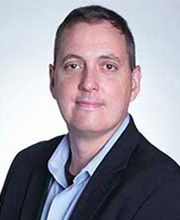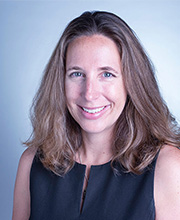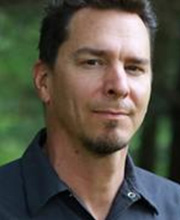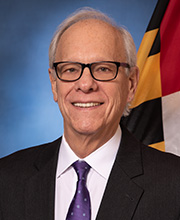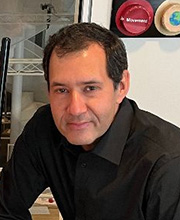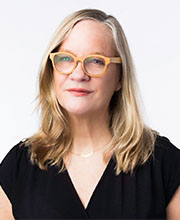Below is the list of speakers who will discuss their work and some key principles that their discipline or domain offers to help guide the efforts of the workgroups.
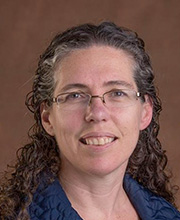
Victoria Coles
Professor of Oceanography, Horn Point Laboratory, University of Maryland Center for Environmental Science
My research focuses on understanding the interactions between physical and biogeochemical ocean processes in both coastal and open ocean regimes. I use both observations and models of coupled systems using strategies that bridge widely varying spatial and temporal scales to better understand how event scale, or individual scale processes influence the dynamics of the whole system. The common theme is how nonlinear interactions between physics, biogeochemistry and ecology are influenced by climate variability.
My most recent research efforts include: understanding the physical and ecological impacts of changes in extreme events in the Chesapeake Bay using data and IPCC class model projections; combining Eulerian with Lagrangian and stochastic modeling techniques to allow coupled circulation, biogeochemistry, and ecology models to span large ranges in spatial and temporal scale processes in the Amazon River Plume; and coupling models of ocean currents and biogeochemistry to genes and macroalgae.
Talk title: Changing Chesapeake: What’s in store for the eastern shore?
Aaron Deslatte
Associate Professor, School of Public and Environmental Affairs, Indiana University, Bloomington
Aaron Deslatte joined O’Neill as an assistant professor in 2019 and directs the Metropolitan Governance and Management Transitions (MGMT) Laboratory. His research focuses on the roles that public managers play in enhancing economic, environmental and social sustainability at the local and metropolitan level, with the goal of building cumulative knowledge which can help local governments advance sustainable economic and community development.
Deslatte previously taught at Northern Illinois University and is a faculty affiliate with the IU Environmental Resilience Institute and the Vincent and Elinor Ostrom Workshop. He also spent many years as a journalist covering politics and government in Missouri, Kansas, Arkansas, and Florida, including a term as the Tallahassee Bureau Chief at the Orlando Sentinel.
Talk title: Seeing No Evil? Human Reasoning, Collective Inference and Climate Action
O’Reilly is an environmental anthropologist who studies how scientists and policymakers participate in environmental management, both in regard to the Antarctic environment and global climate change. Through participant observation and ethnographic interviews, she examines how people and ideas in science and policy interact, how experts make decisions about matters of concern, and how relationships with the environment inform knowledge production. O’Reilly has conducted research in Antarctica, New Zealand, at the Antarctic Treaty consultative meetings and at meetings of the United Nations Framework Convention on Climate Change (UNFCCC). Her current project analyzes how assessors in the Intergovernmental Panel on Climate Change make decisions in the writing of their assessment reports, which form the core set of science advice to the UNFCCC. Much of this work is represented in her new co-authored book Inside the IPCC: how assessment practices shape climate knowledge (2024, Cambridge University Press).
Talk title: The Curve: How scientists work with ambiguity to project sea level rise
Dr. Park’s research interests include critical political economy of communication, new media technologies, media and democracy, environmental sustainability, consumerism and international communication. He is the author of Media Reform and the Climate Emergency: Rethinking Communication in the Struggle for a Sustainable Future with the University of Michigan Press, and Conglomerate Rock: The Music Industry’s Quest to Divide Music and Conquer Wallets with Lexington Books. His scholarship also appears in numerous journal articles, proceedings and book chapters including: the Journal of Communication Inquiry, Communication, Culture and Critique, American Journal of Media Psychology, The Political Economy of Communication, Information, Communication and Society, American Behavioral Scientist, International Marketing Review, Labor Studies Journal and the Journal of Social Media Studies. He serves on the editorial/advisory boards of several academic journals, and has received many teaching and research awards during his career, among them include a Howard Hughes Research Sabbatical Scholarship, the Outstanding Faculty Contributions to Service-Learning Instruction in Higher Education Award from the Executive Committee of the Gulf-South Summit for Service-Learning and Civic Engagement in Higher Education, an Honorary Fellowship at the University of Wisconsin-Madison in the School of Journalism and Mass Communication, a Fulbright-Hays Scholarship to the Caribbean, and a Tinker-Nave grant to research media and human rights groups in Argentina.
Talk title: Mass Communication and the Environment: Problems, Solutions and Pathways to Communicate
Paul Pinsky was appointed by Governor Moore to be the Director of the Maryland Energy Administration and he took office on January 18, 2023. Prior to his appointment as director, he was elected to the Maryland State Senate seven times. As a senator, he chaired the Education, Health and Environmental Affairs Committee. He has also served on the Maryland Commission on Climate Change since its inception. Pinsky has been a long-time champion in the fight to address climate change and clean up the Chesapeake Bay. He is the principal author of dozens of environmental laws that have helped shape most major state environmental policies in Maryland over the last two decades.
As senator, he sponsored the landmark Climate Solutions Now legislation, passed in 2022, which requires Maryland to slash emissions 60% by 2031 and to achieve net zero emissions by 2045. He was also the lead sponsor of: the watershed 2006 Healthy Air Act which included mandating Maryland’s membership in the Regional Greenhouse Gas Initiative (RGGI); legislation codifying the Climate Commission; and the 2009 and 2016 Greenhouse Gas Reduction Acts. He also co-sponsored the Clean Energy Jobs Act to require Maryland to obtain at least 50% of its electricity from renewable sources by 2030.
Talk title: State Incentives to Combat Climate Change
Mark SubbaRao leads NASA’s Scientific Visualization Studio, a group tasked with visualizing NASA science results for public audiences. Before joining NASA, Mark spent 18 years at the Adler Planetarium in Chicago, where he produced planetarium shows and designed museum exhibits featuring data-driven scientific visualizations. During 2019-2020 Mark served as President of the International Planetarium Society (IPS), where he spearheaded the ‘Data to Dome’’ initiative – an effort to prepare the planetarium community for the big data era. Before that he worked at the University of Chicago where he was part of a team that created the largest 3D map of the Universe, the Sloan Digital Sky Survey.
Talk title: Visualizing our Changing Planet at the Earth Information Center
Wednesday Night Speakers: Innovative Climate Media Arts
UMBC, the host university for the Full-Circle Workshop, has invested in innovative media and digital arts since its founding. In fact, workshop sponsor: the Imaging Research Center is the oldest research center at UMBC—a Research 1 university. Wednesday evening will provide an opportunity for us to share some of that work that is relevant to the workshop.
Lisa Moren is a multi-disciplinary artist who works with emerging media. In her environmental work, most recently done in collaboration with biologist Dr. Tsetso Bachvaroff, she seeks to evoke a sense of wonder in audiences. Their first work, What is the Shape of Water?, is a cross-species artwork allowing the public to interact with millions of bioluminescent organisms. Their second collaboration, Under the Bay, is an augmented reality data-driven narrative streamed from live under the bay sensors.
Talk title: Emergence
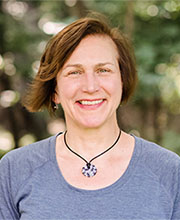
Lynn Cazabon
Professor of Visual Arts, Director of the Center for Innovation, Research, and Creativity, UMBC
Lynn Cazabon is an artist whose multifaceted projects employ participation as a strategy to deepen public engagement with the environmental, existential, and emotional ramifications of the climate crisis. Her work has been exhibited internationally and she has received grants and fellowships from the Fulbright Scholar Program, Saul Zaentz Innovation Fund, the Puffin Foundation, Robert W. Deutsch Foundation, Maryland State Arts Council, Franklin Furnace Archives, the Camargo Foundation, MacDowell, and Yaddo. She is a Professor of Art and Director of the Center for Innovation, Research, and Creativity at UMBC.
Talk title: Losing Winter
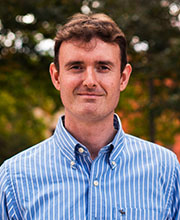
Ryan Zuber
Technical Director, Artist/Animator, Imaging Research Center, UMBC
Ryan Zuber is an artist and animator who serves as the Imaging Research Center’s Technical Director. With a range of expertise in 3D production for both film and real-time applications, Ryan works with interdisciplinary teams of artists, scientists, engineers, and students to address challenges of conceptual, creative and technical complexity. He has contributed to projects shown at the Baltimore Museum of Art, the Maryland Historical Society, the National Academy of Sciences building in Washington DC, the Peale Museum, The Wild Center, and the Space Foundation in Colorado Springs, Colorado. Ryan also worked as a science illustrator at NASA’s Goddard Space Flight Center where he spent several years producing illustrations for NASA missions such as the Solar Dynamics Observatory, the NPOESS Preparatory Project, and the Global Precipitation Measurement Mission.
Talk title: Building a Museum of Climate Change in Virtual Reality
